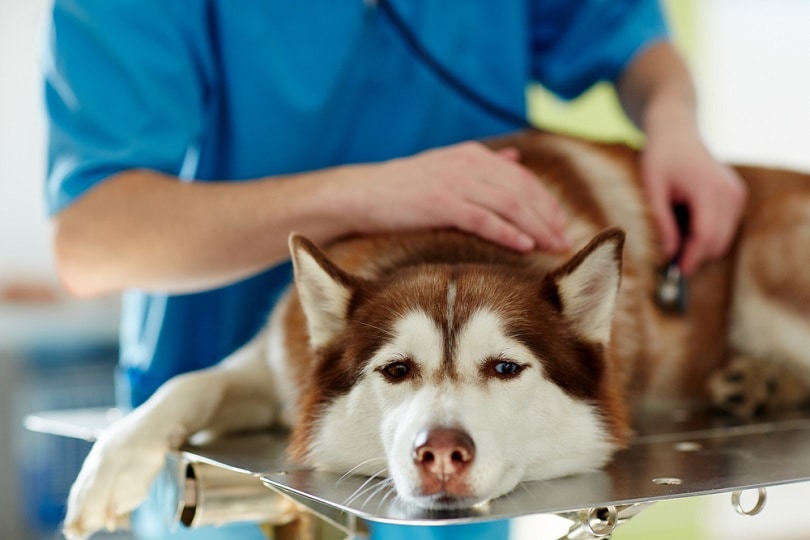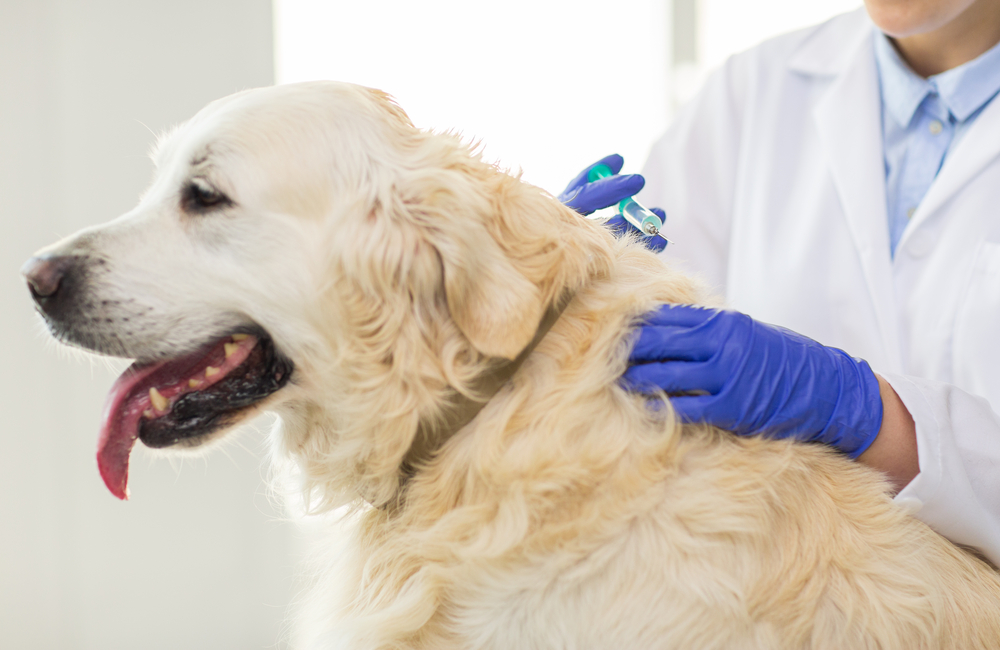Can Dogs Get Strep Throat? Vet Reviewed Prevention & Treatments

There’s no better cure when you’re feeling ill than snuggling up with your dog for a good binge session on Netflix. And if you’ve ever had strep throat, you know how awful you feel and how comforting those canine cuddle parties are. However, what happens if you notice your dog exhibiting the same signs of strep as you? Can dogs really get strep throat?
A dog’s throat anatomy is not that dissimilar from ours. They have tonsils, lymph nodes, larynx, and vocal cords, all of which make them susceptible to many of the same throat conditions that can afflict humans. Strep throat may be rare in dogs, but it can occur. Read on to learn more about canine strep throat, including how to treat and prevent it.


Can Dogs Get Strep Throat?
Yes, dogs can get strep throat. It occurs when the tonsils become infected by streptococcus bacteria. However, the specific bacterium that causes the infection in humans is a different strain than the one that occurs in dogs.
The type of strep that affects humans is caused by the group A streptococcus (GAS) bacterium, while the kind that dogs get is caused by the group G streptococcus (GGS) bacterium. The bacterium that causes strep in dogs—also known as S. canis—is present in a healthy pup’s throat, gastrointestinal and reproductive tracts, and skin. It is not pathogenic and is classed as a commensal organism.
However, when the bacteria get past their normal defenses, they can invade tissues and cause a host of complications like skin infections, pneumonia, and urinary tract infections. Rarely, strep can cause potentially life-threatening conditions like necrotizing fasciitis or streptococcal toxic shock syndrome.
Signs of Strep Throat in Dogs


Though the types of strep that affect humans and dogs are different, the signs of the illness aren’t that different from species to species.
Signs of strep in dogs include:
- Red tonsils
- Swollen tonsils
- Difficulty swallowing
- Fever
- Lip licking
- Coughing
- Gagging
- Poor appetite
- Lethargy
What Are the Causes of Streptococcus Infections in Dogs?


Some dogs may have a predisposition to developing any streptococcus infection, not just strep throat. Risk factors include:
- Age. Puppies and senior dogs may be at a higher risk of developing strep throat simply because their immune systems are underdeveloped or more vulnerable to illnesses.
- Wounds. As mentioned above, the strep bacteria is typically present on a dog’s skin and can, therefore, infect open wounds.
- Immunosuppression. Dogs with weakened immune systems, such as those undergoing cancer treatment, may be at a higher risk of infection than their healthier counterparts.
- Allergies. Dogs with certain allergic skin conditions may experience strep infections due to their skin barrier being compromised.
How to Treat Strep Throat in Dogs
Strep throat will be treated like most other bacterial infections in dogs. Your veterinarian will prescribe antibiotics to fight off the bacteria and ask you to ensure your pup is getting enough hydration and rest to heal. They will try undress the underlying causes of the infection. Make sure you’re administering the antibiotics as prescribed to help facilitate healing and provide relief from the pain.
Dehydration is a genuine concern for dogs with strep, as the throat pain can be so severe that drinking is painful. If your pup is resistant to hydrating, try enticing them to drink more with boiled chicken water or by adding more wet food to their diet until they’ve recovered.


How to Prevent Strep Throat in Dogs


While strep throat is pretty rare to see in dogs, it doesn’t hurt to take preventative measures. The good news is that these prevention techniques will protect your pup from not only strep but also other infections and diseases.
- Vaccination. There is no strep throat vaccine for dogs, but keeping up with your pup’s routine vaccines is never a bad idea. Doing so will ensure your pet maintains their overall health and immune system.
- Practice good hygiene. Wash your dog’s food and water bowls regularly to remove leftover food and ensure no bacteria can grow. Throw their bedding in the washing machine to keep it clean.
- Practice good dental care. Poor dental health can be to blame for throat infections and tonsillitis in dogs. Get into the habit of brushing your dog’s teeth, not only to keep throat infections at bay but to promote overall health and wellness.
Can I Pass Strep to My Dog or Vice Versa?
If you’ve ever had strep throat before, you probably know how contagious (and just downright awful) it can be. According to Cornell University there is no good evidence for dogs catching a strep A infection. In the same breath, it is rare for humans to contract strep from their dogs, but not entirely unheard of. A case involving a dog bite led to cellulitis and a blood infection in a human caused by S. canis.
However, just because it’s unlikely for you or your dog to pass strep to one another, that doesn’t mean all hygiene rules should be ignored when either of you is sick. Make sure you practice good hygiene whenever anyone at home is ill, especially when there are young, senior, or immunocompromised humans or pets in the house.


Final Thoughts
Dogs can develop strep throat, though it is a different type than what is seen in humans. This is good news if you’re currently suffering from strep throat and all you want is a snuggle from your dog. Most vets will tell you to go for it!
However, if your pup is exhibiting signs of strep throat, make an appointment to see your veterinarian. This condition can be excruciating and may lead to dehydration if not treated properly.
Featured Image Credit: Yobab, Shutterstock



